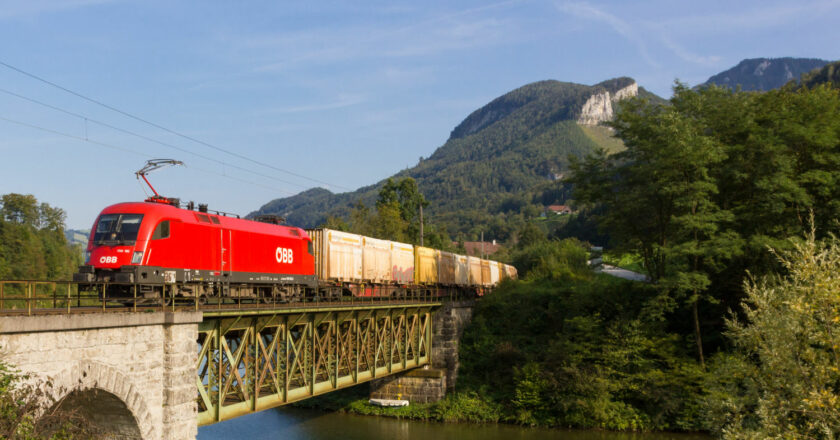Despite economic and climatic challenges, ÖBB (Austrian Federal Railways) achieved positive results in 2024, surpassing its passenger record and progressing on key infrastructure projects.
More than 511 million people travelled with ÖBB last year, marking an increase of 3.6% compared to 2023. This growth was mainly driven by short-distance trains (+9.8%).
Regarding financial results, earnings before taxes (EBT) were 113.6 million euros, 2 million euros more than the previous year.
Flood impact and economic challenges
The year was marked by a “flood of the century” which significantly affected passenger and freight transport performance.
While passenger transport recorded a reduced EBT of EUR 70 million (EUR 39 million less than in 2023), Rail Cargo Group experienced losses of EUR 24.5 million due to falling demand and high energy costs.
However, ÖBB Infrastruktur increased its operating performance by 4.2 per cent to 172.8 million train kilometres.
During 2024, ÖBB continued its infrastructure and sustainability investment programme. Highlights include the completion of the structural work on the Koralm railway and the Semmering base tunnel and the construction of new power plants to increase the group’s energy independence.
In addition, 30 new trains were added to the service in 2024, and 120 vehicles are planned to be added in the next two years.
Passenger growth and expansions led to an increase in staff. In 2024, ÖBB hired more than 6,200 new employees, bringing the total number of employees to 47,484 (+5.4%). This year, a further 4,000 employees will be recruited to manage the generational change.
Preparations for the Koralm railway
The opening of the Koralm railway in December 2025 promises to revolutionise mobility in Austria. This line will connect Graz and Klagenfurt in just 45 minutes, compared to the 2-hour trip it takes now. The new line will allow trains to run at a maximum 250 km/h speed in mixed traffic.
This new infrastructure will create a new metropolitan area with more than 1.1 million inhabitants. It will also be a key part of the Baltic-Adriatic corridor to strengthen freight transport.
With a solid financial base and transformative projects underway, ÖBB is positioning itself as a leader in sustainable mobility in Europe. “Investments are paying off; rail is working,” said Andreas Matthä, the group’s CEO.


